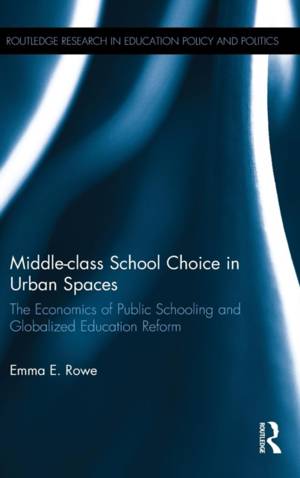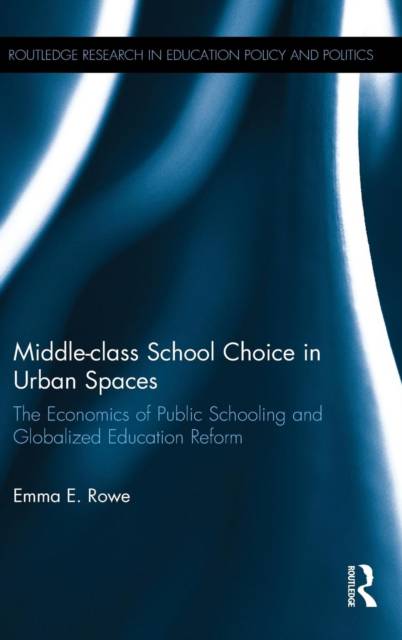
- Retrait gratuit dans votre magasin Club
- 7.000.000 titres dans notre catalogue
- Payer en toute sécurité
- Toujours un magasin près de chez vous
- Retrait gratuit dans votre magasin Club
- 7.000.0000 titres dans notre catalogue
- Payer en toute sécurité
- Toujours un magasin près de chez vous
Middle-class School Choice in Urban Spaces
The economics of public schooling and globalized education reform
Emma Rowe
198,45 €
+ 396 points
Description
Middle-class School Choice in Urban Spaces examines government-funded public schools from a range of perspectives and scholarship in order to examine the historical, political and economic conditions of public schooling within a globalized, post-welfare context. In this book, Rowe argues that post-welfare policy conditions are detrimental to government-funded public schools, as they engender consistent pressure in rearticulating the public school in alignment with the market, produce tensions in serving the more historical conceptualizations of public schooling, and are preoccupied by contemporary profit-driven concerns.
Spécifications
Parties prenantes
- Auteur(s) :
- Editeur:
Contenu
- Nombre de pages :
- 212
- Langue:
- Anglais
- Collection :
Caractéristiques
- EAN:
- 9781138120419
- Date de parution :
- 07-12-16
- Format:
- Livre relié
- Format numérique:
- Genaaid
- Dimensions :
- 163 mm x 234 mm
- Poids :
- 430 g

Les avis
Nous publions uniquement les avis qui respectent les conditions requises. Consultez nos conditions pour les avis.






